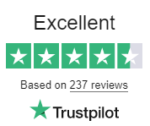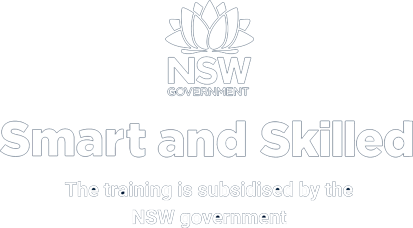In the dynamic world of construction, a builder’s licence stands as a pivotal credential that elevates your professional stature and underscores your commitment to excellence. By obtaining a builder’s licence, you gain recognition as a skilled professional within the construction industry, showcasing your competence, experience, and dedication to delivering quality workmanship.
Understanding how to get a builders licence SA can provide, once you’ve met certain criteria, opens a realm of advantages and opportunities for you.
Once you successfully get the licence, you can access a wider range of projects, enhancing your professional reputation and providing peace of mind. Obtaining a builder’s licence is more than a formality; it’s your pathway to success and instilling confidence in your clients, along with getting a CPC50220 Diploma of Building and Construction (Building) or CPC50320 Diploma of Building and Construction (Management).
Understanding the Importance of a Builder’s Licence
Significance of a builder’s licence in the construction industry
In the dynamic world of construction, a builder’s licence stands as a pivotal credential that elevates your professional stature and underscores your commitment to excellence. It signifies not only your proficiency but also your adherence to legal and regulatory standards. With a builder’s licence in hand, you become part of an esteemed community that upholds the highest levels of craftsmanship and integrity.
By obtaining a builder’s licence, you gain recognition as a skilled professional within the construction industry. It serves as evidence of your competence, experience, and dedication to delivering quality workmanship. Clients and stakeholders place their trust in licenced builders, knowing that their projects will be handled by individuals who have met rigorous standards and possess the necessary expertise.
This underlines the importance of knowing how to get a builders licence SA can provide if you meet the criteria.
Key legal and regulatory requirements for obtaining a builder’s licence
Securing a builder’s licence requires navigating through a set of legal and regulatory requirements designed to ensure the safety, integrity, and compliance of construction practices. These requirements typically include educational qualifications, practical experience, and passing relevant examinations.
To obtain a builder’s licence, you may need to complete specific training programs or apprenticeships, demonstrating your commitment to continuous learning and professional development. Additionally, you may be required to showcase your expertise by providing evidence of the successful completion of construction projects and demonstrating a thorough understanding of industry regulations.
Advantages and opportunities for licenced builders and their clients
Being a licenced builder opens a realm of advantages and opportunities for both professionals and their clients. For builders, the licence grants access to a wider range of projects, including those that have legal prerequisites for licenced individuals. It enhances your professional reputation and provides a competitive edge in a crowded market, enabling you to attract discerning clients who value quality and reliability.
Licenced builders also enjoy the peace of mind that comes with knowing they are operating within the legal framework, protecting themselves and their clients from potential liabilities. Moreover, it opens doors to professional networks, collaboration opportunities, and industry recognition, fostering further growth and career advancement.
Clients who engage licenced builders benefit from the assurance that their projects will be executed with the highest standards of craftsmanship and compliance. They can trust that their investment is in capable hands, minimising the risks associated with subpar construction work.
💡KEY TAKEAWAY: Obtaining a builder’s licence is more than a mere formality in the construction industry. It signifies your competence, adherence to legal requirements, and commitment to delivering exceptional results. By becoming a licenced builder, you unlock a world of opportunities, elevating your professional standing and instilling confidence in your clients.
Meeting the Eligibility Criteria
Educational and experiential prerequisites for obtaining a builder’s licence
To embark on the journey toward obtaining a builder’s licence, it is vital to familiarise yourself with the educational and experiential prerequisites that pave the way for this esteemed certification. A solid foundation of knowledge and hands-on experience in the realm of building and construction will play a pivotal role in your pursuit.
In terms of education, aspiring builders should aim to complete a comprehensive program or course in construction management or a related field. These educational endeavours equip you with fundamental principles, industry best practices, and a solid understanding of construction processes. Look for reputable institutions or training centres that offer specialised programs tailored to aspiring builders.
However, education alone is not sufficient. Gaining practical experience is equally essential to meeting the eligibility criteria for a builder’s licence.
Immerse yourself in the construction industry by actively seeking opportunities to work on various building projects. Apprenticeships, internships, and entry-level positions in construction companies or contracting firms can provide valuable exposure to different aspects of the trade, enabling you to refine your skills and expand your knowledge base.
Essential documentation and certifications needed for the application
Once you have fulfilled the educational and experiential prerequisites, it’s time to gather the necessary documentation and certifications to support your application for a builder’s licence. These crucial pieces of paperwork and credentials substantiate your qualifications and demonstrate your commitment to professionalism and adherence to industry standards.
Start by obtaining your academic transcripts and certifications from the educational institution where you completed your construction management program. These documents serve as tangible evidence of your educational achievements and validate your dedication to acquiring the necessary theoretical knowledge.
Additionally, certifications such as OSHA’s Construction Safety Training, First Aid/CPR, and specialised training in relevant areas of construction, such as electrical work or plumbing, can significantly enhance your application. These certifications showcase your commitment to safety protocols and highlight your expertise in specific construction disciplines.
Supplementary requirements: character references and background checks
In the pursuit of a builder’s licence, it is crucial to acknowledge the importance of character references and background checks, as they serve as an additional layer of assessment to ensure the integrity and professionalism of licenced builders. These supplementary requirements are designed to ascertain your credibility and reliability within the industry.
When selecting character references, choose individuals who can vouch for your work ethic, professionalism, and trustworthiness. Consider reaching out to former employers, colleagues, or clients who have witnessed your skills and commitment firsthand. Seek references who can provide comprehensive insights into your character, capabilities, and ability to navigate the challenges of the construction field.
Furthermore, be prepared for background checks, which may involve scrutinising your criminal record, credit history, and any past legal proceedings related to construction. Honesty and transparency are paramount during this process, as any discrepancies or omissions can jeopardise your application.
Ensure that your personal and professional records are accurate and up to date, facilitating a smooth evaluation of your suitability for a builder’s licence.
💡KEY TAKEAWAY: Meeting the eligibility criteria for a builder’s licence involves fulfilling educational and experiential prerequisites, gathering essential documentation and certifications, and satisfying supplementary requirements such as character references and background checks. By diligently acquiring the necessary knowledge, experience, and credentials, you can position yourself as a competent and trustworthy builder, ready to contribute to the industry’s growth and success.
Navigating the Application Process
Researching the specific requirements of the licencing authority in SA
When embarking on the application process, it is crucial to begin by thoroughly researching the specific requirements set forth by the licencing authority in SA. Delve into the regulations, guidelines, and procedures outlined by the authority, as this knowledge will serve as your compass throughout the application journey. Familiarise yourself with the criteria for obtaining a license, including the necessary qualifications, certifications, and experience.
To gain a comprehensive understanding, consult official documents, websites, and any available resources provided by the licencing authority. Take note of any deadlines, fees, or additional supporting documentation that may be required as well.
Assembling and organising the necessary documents for the application
Once you have acquired a thorough understanding of the licencing requirements, it is time to assemble and organise the necessary documents for your application. Begin by creating a checklist of all the required materials to ensure that no crucial document is overlooked. Commonly requested documents may include proof of identity, educational certificates, professional certifications, and any relevant work experience records.
Pay careful attention to the specific formatting, notarisation, or authentication requirements stipulated by the licencing authority. Ensure that all documents are accurate, up-to-date, and neatly organised to present a professional and thorough application.
Submitting the application and following up with the licencing authority
With your meticulously assembled application in hand, it is time to submit it to the licencing authority. Follow the prescribed submission process outlined in their guidelines, paying attention to any designated channels or online platforms for applications.
After submission, it is essential to remain proactive and follow up with the licencing authority. This demonstrates your dedication and professionalism while ensuring that your application progresses smoothly. If there are any delays or additional information is required, promptly provide the requested materials or clarifications to avoid unnecessary setbacks.
💡KEY TAKEAWAY: Navigating the application process for a license in the construction industry requires thorough research of the licencing authority’s requirements, meticulous organisation of necessary documents, and proactive follow-up with the authority. By approaching each step with attention to detail and professionalism, you will enhance your chances of a successful application and embark on a fulfilling journey in the building and construction field.
Preparing for the Builder’s Licence Exam
Familiarising yourself with the exam format and content
Before embarking on your journey to becoming a licenced builder, it is crucial to familiarise yourself with the exam format and content. Understanding what to expect will enable you to approach the exam with confidence and preparedness. Take the time to thoroughly review the structure of the exam, including the number of sections, types of questions, and time constraints.
Additionally, delve into the content that the exam will cover. This includes a range of topics such as building codes, regulations, and industry standards. Familiarise yourself with the key principles and concepts within these areas, ensuring you have a solid foundation of knowledge to draw upon during the exam. Consider organising your study materials and notes according to these topics, allowing for easier reference and review.
Studying relevant building codes, regulations, and industry standards
To succeed in the Builder’s Licence Exam, a comprehensive understanding of building codes, regulations, and industry standards is essential. These guidelines form the backbone of the construction industry, ensuring safety, quality, and compliance in building projects. Dedicate ample time to studying and reviewing these codes and regulations, focusing on the ones most relevant to the exam.
Start by obtaining the latest versions of the relevant codes and regulations. Familiarise yourself with their structure and organisation, paying close attention to the sections that pertain to your specific licencing requirements. Take the time to read through each code or regulation, highlighting key points and making notes for future reference.
In addition to the codes and regulations, stay updated with industry standards and best practices. These documents provide valuable guidance on various construction processes and techniques. By incorporating these standards into your study materials, you demonstrate a commitment to excellence and a thorough understanding of the industry’s evolving landscape.
Effective strategies for exam preparation and utilising available resources
Preparing for the Builder’s Licence Exam requires more than just knowledge of the content; it necessitates effective strategies and resource utilisation. Implementing the right approach to exam preparation will greatly enhance your chances of success.
Create a study schedule that allows for structured learning and revision. Break down the content into manageable sections and allocate specific timeframes for each topic. This will help you stay organised and focused, preventing overwhelming cramming sessions. Regularly review and update your schedule to ensure optimal progress.
Leverage available resources to supplement your studies. Seek out textbooks, study guides, online resources, and practice exams specifically tailored to the Builder’s Licence Exam. These resources can provide valuable insights into the exam format, content, and types of questions you may encounter. Additionally, consider joining study groups or forums where you can exchange knowledge and learn from others’ experiences.
💡KEY TAKEAWAY: When preparing for the Builder’s Licence Exam, familiarise yourself with the exam format and content, study relevant building codes, regulations, and industry standards, and employ effective strategies for exam preparation while utilising available resources. By understanding the exam structure, mastering the required codes and regulations, and adopting efficient study techniques, you can approach the exam with confidence and increase your likelihood of success.
Maintaining Compliance and Renewing the Licence
Adhering to professional and ethical standards as a licenced builder
As a licenced builder, it is crucial to uphold the highest professional and ethical standards in your work. Striving for excellence not only ensures the quality of your projects but also helps maintain compliance with industry regulations. Demonstrating integrity and accountability in every aspect of your work is key.
It involves adhering to building codes, safety protocols, and environmental regulations to safeguard the well-being of both your clients and the community.
Continuing education and professional development opportunities
In the ever-evolving field of building and construction, continuous learning is vital for growth and success. Embracing opportunities for continuing education and professional development allows you to stay updated with the latest trends, techniques, and advancements in the industry.
Engage in workshops, seminars, and courses that enhance your knowledge and skills, enabling you to tackle new challenges with confidence.
Timely renewal of the builder’s licence and staying updated with changes
Renewing your builder’s licence on time is essential to maintaining your credibility and legal standing. Keep track of expiration dates and proactively initiate the renewal process to avoid any disruptions in your operations.
Additionally, staying updated with changes in licencing requirements, regulations, and building codes is crucial. Regularly review industry publications, attend relevant seminars, and consult authoritative sources to ensure you are aware of any updates or modifications that may impact your work.
💡KEY TAKEAWAY: By adhering to professional and ethical standards, actively pursuing continuing education, and staying updated with licencing requirements, you can maintain compliance and thrive as a licenced builder. Embracing these practices ensures the delivery of quality work, fosters professional growth, and establishes your reputation as a trusted expert in the industry.
Everthought is a leading educational institution, and we are dedicated to empowering individuals like you with comprehensive knowledge, practical skills, and industry expertise. Our state-of-the-art training facilities, experienced instructors, and industry-aligned programs ensure that you receive the highest quality education to excel in your chosen field.





